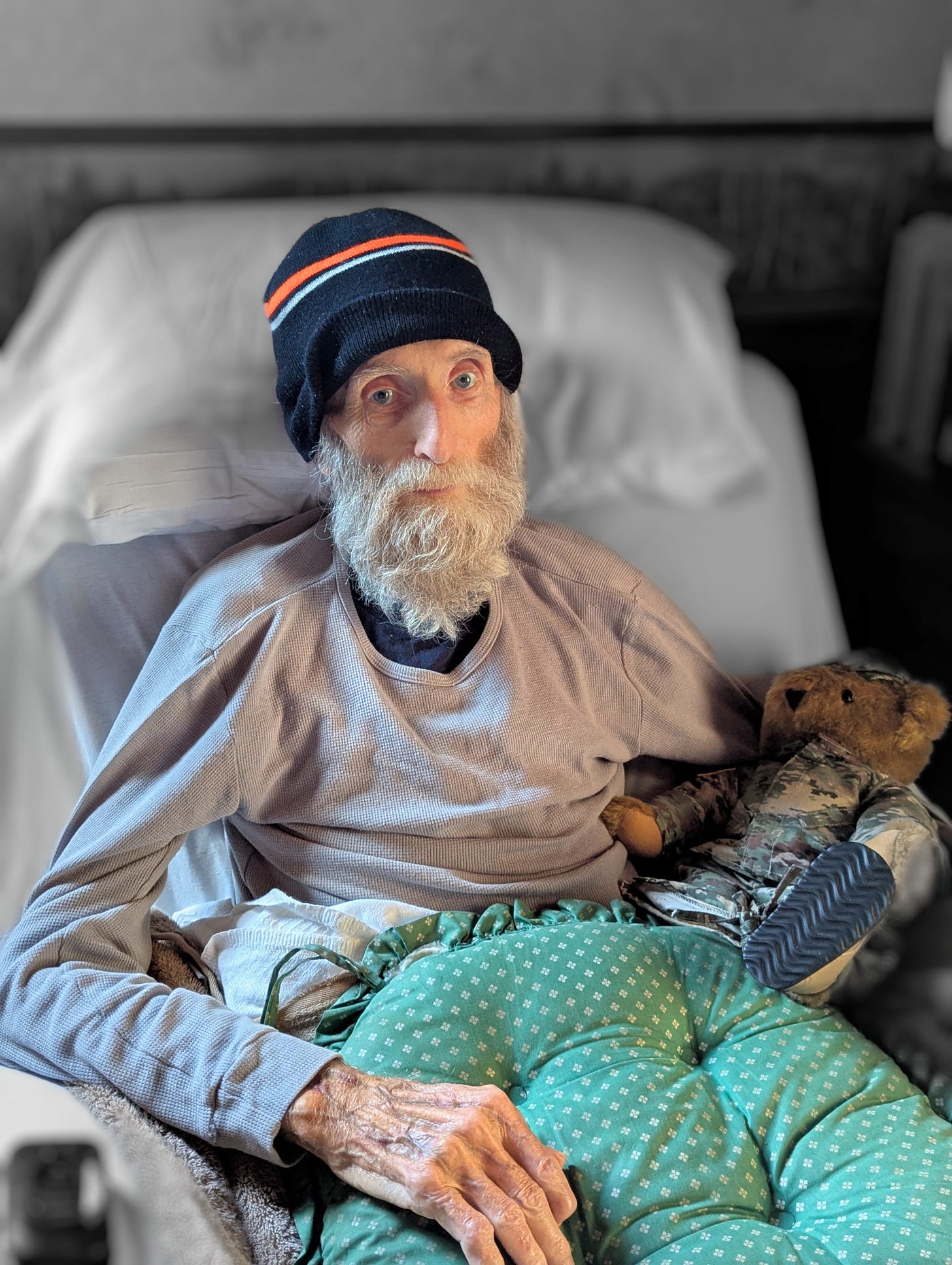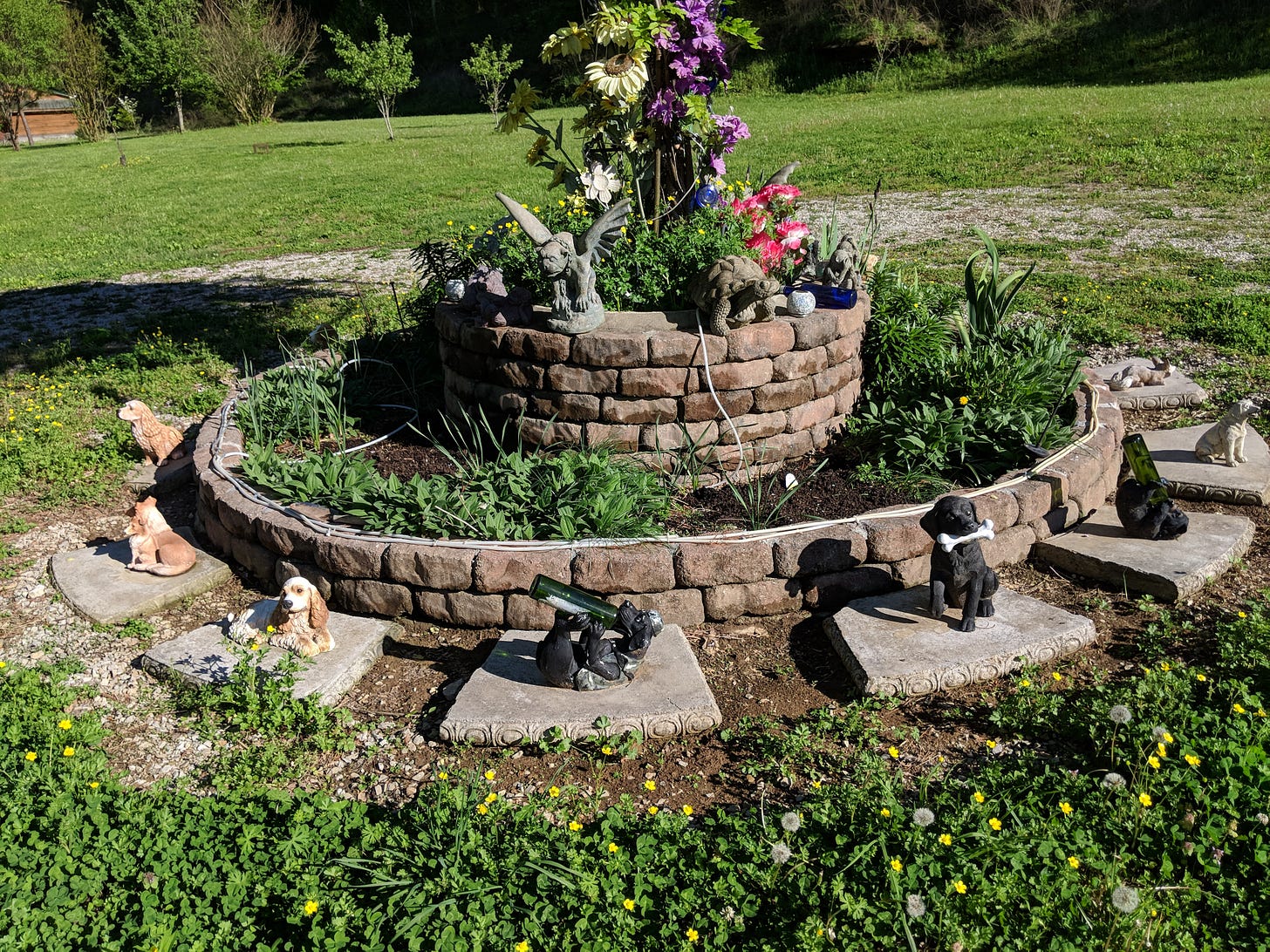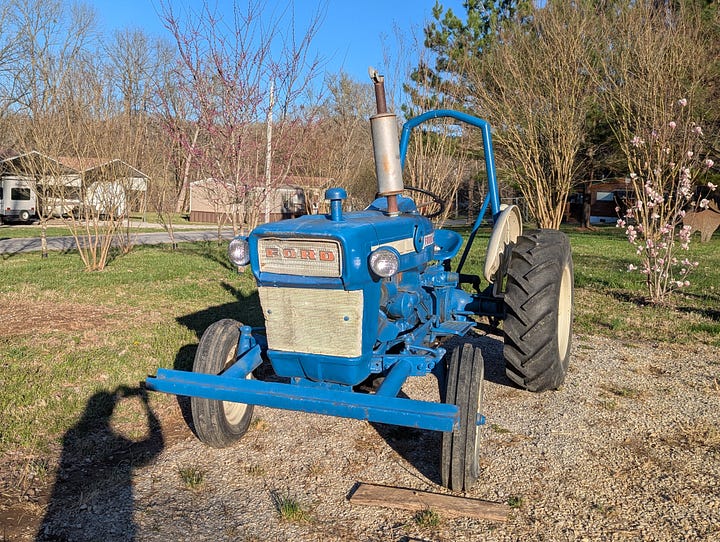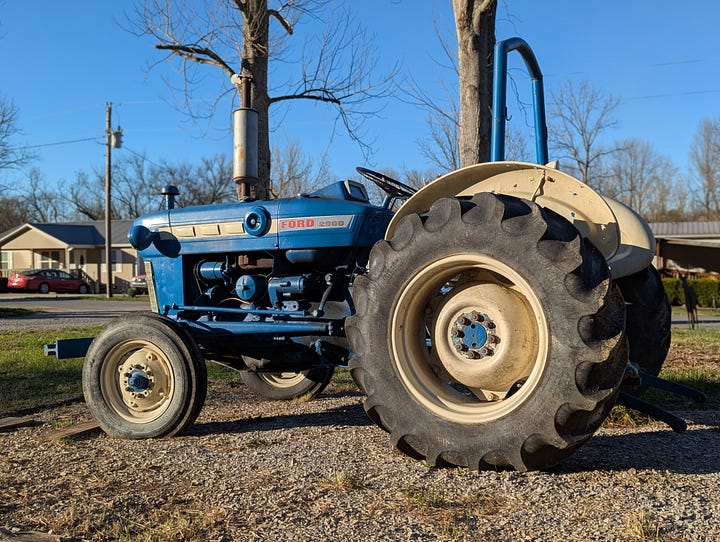On March 14th, my father was released from the hospital and sent home on hospice care. We struggled with this decision. Our family debated over whether this was the right choice, but in the end, we agreed he wanted to be home so we owed it to him to give it a try. After all, he had been at home until this recent hospital stay.
The choice to move him into hospice care was driven in part by the desire to end the hopeless bouncing between hospital emergency rooms, rebounding like a pinball when they punted him to the curb with a band-aid on his symptoms and no diagnosis. For two years, as his health deteriorated, the doctors he visited all seemed flatly disinterested in finding out why.

On Friday, an ambulance came to transport him from the hospital to his home in a tiny mountain town nearly an hour away. I drove separately to run a couple errands enroute – a curbside grocery pickup to save the long trip to pick up supplies later, and a stop at the pharmacy to get his prescriptions in the mid-sized town on the way to his home.
Nothing ever goes according to plan. When I went over his discharge papers with the nurse, they were going to send his prescriptions to the VA pharmacy in Nashville, two hours in the opposite direction. I asked to have them sent to the Walgreens in the mid-sized town called Livingston since the Walgreens in his tiny town had closed.
When I went to pick up the prescription, the pharmacy clerk said no prescriptions were in their system. I called the hospital from the parking lot and spoke with the discharge nurse who insisted that the order had been sent to the Walgreens in Livingston – pause – Texas. I’m certain there was a drop-down box involved in this SNAFU.

The first night home was rough. He couldn’t get up to use the restroom like he had been doing before the hospitalization. The hospice nurse gave us some disposable pull-ups and pads to go underneath him. My stepbrother, Randy, and I set up the rollaway cot in the dining room for him and got him settled in for the night. I left around 8:00 to stay at a nearby cabin I had rented. The next morning, he was soaked, and the bed was soaked. It was a mess.
My father’s mind was still addled by those nasty drugs at the hospital, but he showed signs of improvement. He knew who I was and where he was. That first full day at home, he refused to take his medication, or eat, or even drink.
When I finally asked him why he was refusing everything, he said he wanted to “hurry up and die.”
That’s when it struck me. He perceived hospice as being a death sentence. He thought having this status assigned to him meant that his death was imminent. He didn’t want to linger.
I realized we needed to have a conversation about the situation and his feelings about it. I took his hands in mine – hands that once were strong and skilled, building the very house in which we sat and every structure on that property – and looked into his blazing blue eyes. Hospice wasn’t a death sentence, I explained. It is just a label, a designation.


For the past two years, as he pinballed from one emergency room to another, he had not received treatment for his underlying condition. Normally, when people move to hospice care, they stop those treatments. For him, this meant there would be no change. The act of moving him to hospice care served to unlock certain benefits to which he would not otherwise be entitled. He would receive care focused on making sure he was comfortable and happy so he could continue living his best life for as long as possible.
This conversation dramatically changed his outlook. He went from lying in bed with a forlorn expression, waiting to shrivel away, to getting up on his electric scooter and riding to the bathroom by himself, just as he had been doing prior to the hospitalization. He resumed taking his medications and drinking liquids offered to him. He even ate a few bites of food.
By Monday, he was scootering around the house, transitioning from the cot to his recliner in the living room. With the onset of the workweek, hospice returned in full force, impressing all of us with their efficiency and compassion. We said he was short of breath, and an oxygen concentrator arrived in a couple hours. He told the nurse his pain was an 8 on a scale of 1 to 10, and she immediately requested pain meds to be prescribed and ordered from the correct pharmacy.
After the nurse’s aide helped him shower and bandaged the beginning of a pressure sore along with his injuries from the fall at the hospital, we got him dressed and into his recliner. He asked for his beard trimmer, then he announced that he wanted to go out to lunch. Randy and I immediately got him and his scooter loaded and off we went. During that week, he asked to go out to lunch three times, and he ate a decent amount of his food each time.
By the time I left on Friday evening, he seemed to be stable and comfortable. This was a far cry from how he was when I arrived two weeks earlier. His voice had returned from a weak whisper, and he was back to being the man I used to know.


Hospice was absolutely the best choice we could have made. He is able to remain in his own home – the home he built from trees he cut down and milled for lumber – and be among the people he knows and loves for as long as possible. Comfort will be provided for his symptoms, and home health care will visit him multiple times per week.
The hospice workers I met were compassionate and seemed to genuinely care that he would be as comfortable and content as possible. I wholeheartedly trust them to be there for him when I cannot. If I know my dad at all, I know he loves being the center of attention. Transitioning to hospice has made everything all about him, which makes him happy. He might even stick around a little bit longer just to bask in the spotlight as much as possible.




I’m glad the hospice reframe really helped him. Honestly I would probably have been the same if given that I was on hospice. It’s great that he has you. Thank you for sharing this. I also love his place.!
What a fascinating man your dad is! I'm glad he's in caring hands now. ♥️